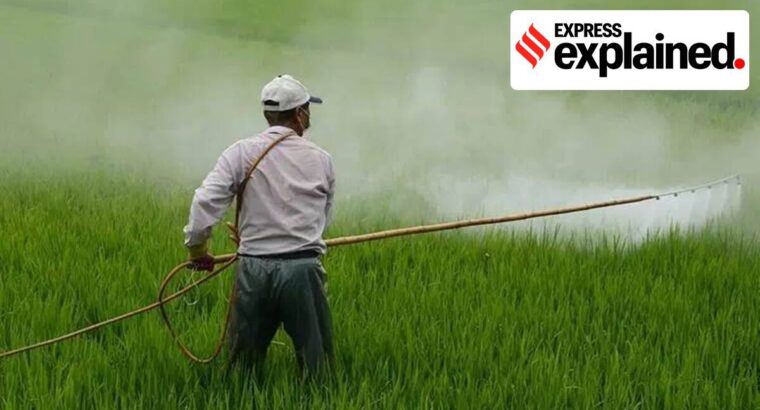Explained: Why weedicides are essential for DSR technique to prosper
As efficient as it is, DSR has a major flaw – an increase in the growth of weeds, and the obvious choice to tackle this problem is to use weedicides.
After announcing a Rs 1500 compensation per acre for farmers using Direct Seeding of Rice (DSR), Chief Minister Bhagwant Singh Mann recently claimed that nearly 20 lakh acres of land will be used to grow rice using the DSR technique, the highest ever of any paddy sowing season in state history. But as efficient as it is, DSR has a major flaw – an increase in the growth of weeds, and the obvious choice to tackle this problem is to use weedicides. Amid talks by the government to ban 10 agro-chemicals to improve soil health and have yields that meet international market standards, Anju Agnihotri Chaba explains why the technique is prone to more weeds and why weedicides are critical for DSR to prosper.
What kinds of weeds generally grow in fields using DSR method?
There are various types of grasses, broadleafs, nut grasses, weedy rice, etc., that grow in DSR fields. Weedy rice – known to severely affect rice yield – is very difficult to control and is commonly found in Punjab, especially in districts like Pathankot.
Why do more weeds grow in DSR fields?
How much weedicide is needed in DSR fields?
Experts from Punjab Agriculture University (PAU) Ludhiana have recommended nearly eight types of herbicides including mandatory ‘pre-emergence’ weedicides (used before germination) and ‘post emergence’ weedicides (used after germination), which are used as per requirement.
The mandatory or pre-emergence weedicide is Pendimethalin while some post-emergence ones are Ricestar 6.7 EC, Almix 20 WP+ Metsulfron methyl, etc. One litre of Pendimethalin mixed in 200 litres of water before spraying is recommended for one acre at the time of sowing.
Post-emergence weedicides, about one litre mixed with 100-200 litres of water is to be sprayed 15-25 days after sowing and when weed plants have one to four leaves. Farmers must spray at the right stage – for example, Nominee Gold can be sprayed when the weed reaches the 2-4 leaf stage.
The fields must be moist and maintain the right soil moisture before the chemicals are sprayed. Experts said that even after spraying various herbicides, weeds that remain must be uprooted manually before they produce seeds.
“These (weedicides) are very economical and don’t more than cost Rs 250 – 500 per litre,” said Prof Makhan Singh Bhullar of the Department of Agronomy, PAU Ludhiana. Prof Bhullar is working on DSR and the impact of weedicides on soil and the environment.
Does traditional Puddled Transplanting require weedicides?
In this method, one spray of weedicides is done within a week after the transplanting and 1200 ml is used per acre. After that, stagnant water does not allow weeds to grow.
What is the impact of herbicides on soil health, environment and the consumer?
The Government of India has listed Pendimethaline, which is mandatory for DSR and has no other alternative in pre-emergence weedicides, in its proposal to ban 27 chemicals. The proposal is part of a move to phase out 66 contentious pesticides for their toxicity; the government will make a decision sometime soon.
Experts said that application of 1-2 kg/hectare of Pendimethalin- registered in 1987 and approved for the control of weeds in wheat, rice, cotton and soybean crops under the 1968 Insecticides Act – TO persist up to 90 days in the soil. But in April 2022, the government held a meeting to discuss a ban on the recommendation of an expert committee.
PAU Experts said that the chemicals are toxic to aquatic life and must not be used near water bodies, aquaculture and pisciculture, and more tests must be conducted to study their impact on soil and the environment. Experts in the Punjab agriculture department said that most farmers in the state use more than the recommended fertiliser and pesticide dose.
If 20 lakh acres do come under DSR this year in Punjab, then farmers will use 10-15 Lakh litres of pendimethalin more than the recommended dose, a senior Agriculture officer said while adding that no one knows about its impact on soil health. He said that there is a need to develop an organic solution as an alternative to herbicides if the government decided to ban them.


